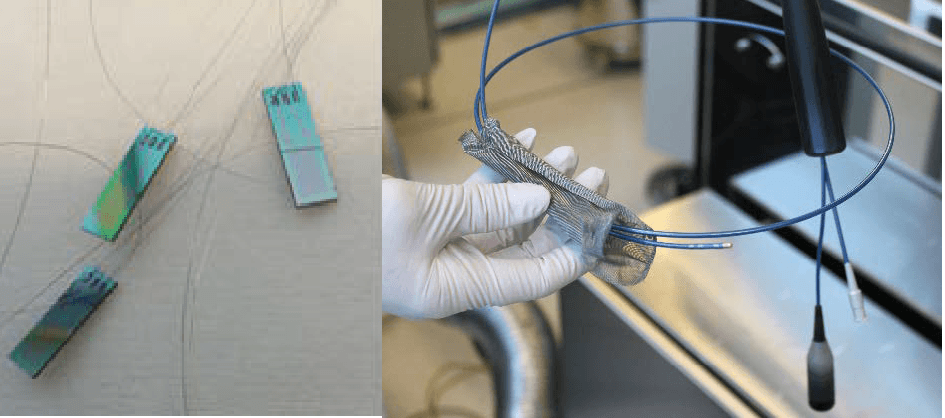Picosun Group, a leading industrial supplier of Atomic Layer Deposition (ALD) thin film coating technology, reports of groundbreaking results in ALD biobarriers for novel medical applications.

Picosun’s ALD biobarriers are developed specifically for hermetic encapsulation and passivation of critical electronics in implantable micromedical devices for e.g. cardiological and neurological treatments. The purpose of the biocompatible ALD barrier layers is to protect the microelectronic components of the devices without interfering with the device functionality. The results are excellent: Devices with the ALD biobarriers lasted for several months in accelerated aging tests, equaling at least ten years inside a human body, whereas non-protected devices started to deteriorate already in a matter of hours. (*)
Medical technology is one of the key industries that reaps the benefits of the on-going digitalization and miniaturization of electronics. Instead of heavy surgeries and clumsy, expensive machines that require frequent hospital visits of the patients, diagnostics and treatments can be performed remotely and with minimally invasive methods utilizing various minuscule devices that can be either implanted inside the body or attached to skin. Lab-on-a-chip devices which combine microfluidics and microelectronics allow fast and cost-efficient in-situ analysis of body fluid and tissue samples. Implantable sensors can monitor blood glucose, blood pressure, intraocular and intracranial pressure, and heart functions. Parkinson’s and potentially many other brain diseases can be treated with implanted probes that provide electrical stimulation to the critical regions of the brain. In cardiology, catheter ablation, the common treatment of cardiac arrhythmias, can be made safer and more precise with the help of state-of-the-art microelectronics and sensor technology. Especially the elderly population benefits from these solutions when remote monitoring of various physiological markers allows them to live longer at home and severe conditions can be detected before they require long and costly hospital treatments.
One of the main challenges in implantology is the interface between the implant and human tissue. Body fluids corrode the electronic parts of the implant, and electronic parts start to leak metal ions into the body when corroded. Often also the biocompatibility of the implant materials is an issue. The answer to these challenges is hermetic encapsulation of the implant with biocompatible barrier layer. ALD’s innate ability to form ultra-thin, highly conformal, and pinhole-free coatings with gentle gas phase processing at low temperatures makes it an ideal method to provide this encapsulation.
Picosun has worked with medical ALD also before, providing production solutions for example for bioactive coatings for surgical implants, and surface treatment of drug particles for controlled drug release. Based on all these applications, ALD technology has a huge potential in health industries, where not only medical science, but IC, MEMS, IoT, energy harvesting, and remote sensing all combine to improve the health and quality of life for all of us.
“Our goal is to constantly scout out new fields where ALD can revolutionize the current ways of working and enable something disruptive. Combining our ALD expertise with the latest innovations in medical science is exactly at the core of this goal. We are very pleased of the results achieved with our ALD biobarriers in encapsulation and passivation of micromedical devices. It is great to work with the leading experts in this field and to expand our own solutions portfolio in medical ALD. The novel devices now developed improve patient safety, make operations and diagnostics quicker, easier, less invasive and more comfortable, and potentially offer relief for ailments that were considered incurable before,” states Dr. Jani Kivioja, CTO of Picosun Group.
(*) Results obtained in the project InForMed, running from 1st June 2015 to 31st September 2018 and coordinated by Philips. The project is funded by ECSEL JU (grant number 2014-2-662155).